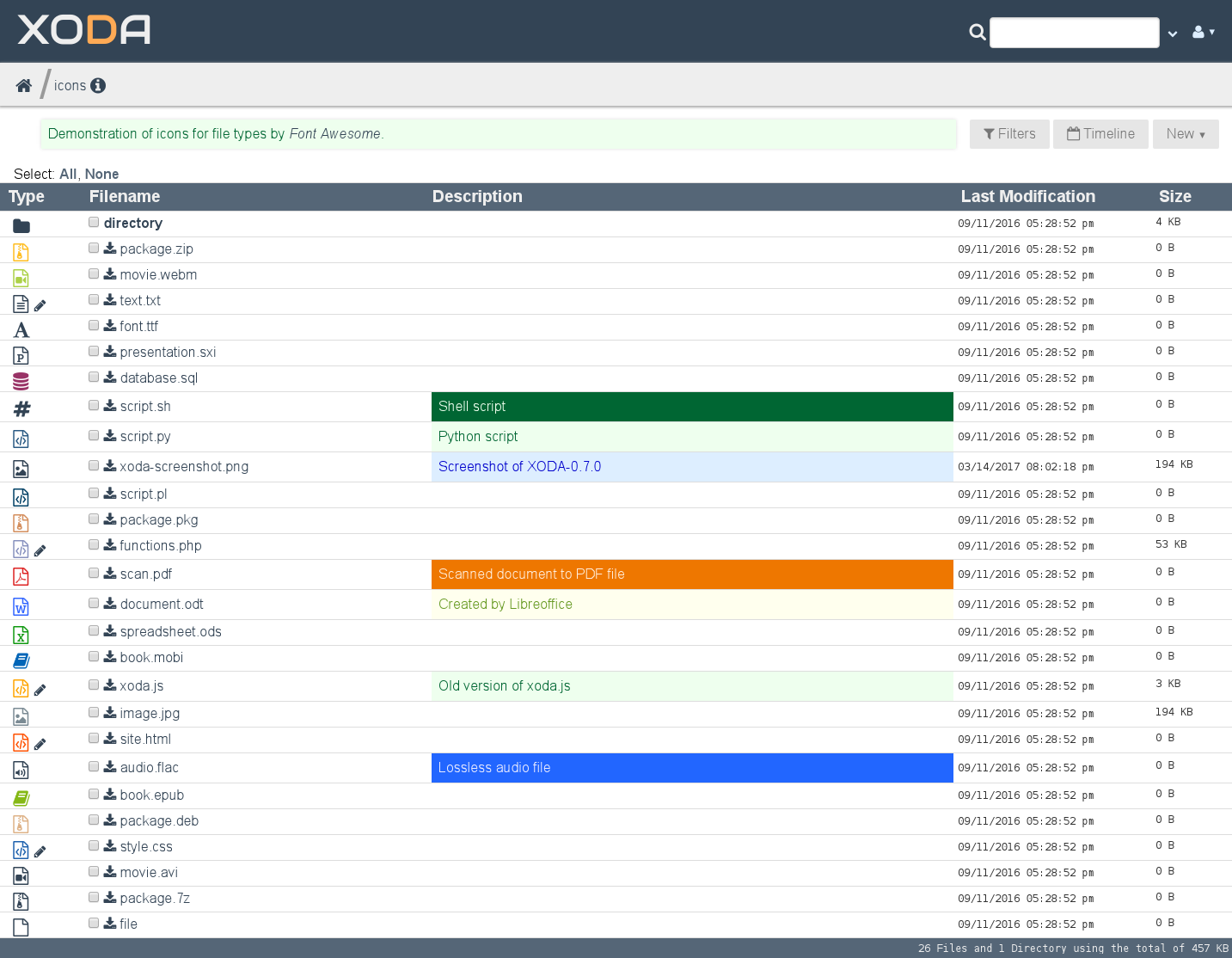XODA is a Web-based DMS file manager
Table of Content
XODA is a free web-based self-hosted file manager that helps you store, organize and manage your files on your own server.
The app is built using PHP, HTML5 and JavaScript. Although, it published since 2007, it has dozens of devoted users who are still using it.
Unlike other solutions which make a use of extensive database, XODA uses a flat-file to store its data, so it does not require any external database like MySQL or PostgreSQL.
XODA is a KISSed (Keep It Simple and Stupid) System for Organizing Documents using AJAX. This is a (DMS) Document Management System without backend database, though making possible organizing files/directories by descriptions, filters and more. (XODA)
Features

- Responsive web-design
- Lightweight
- Works on all modern desktop and mobile browsers
- Descriptions (with different colors)
- Filters (Tags, Categories, you name it)
- Modification time which you can change (and list on a graphic timeline)
- Simple and advanced search options (making use of UNIX's `find`)
- File names and Directories (of course)
- Download multiple files/directories in a single zip-file
- Share (with optional password protection, expiration date, and privilege to edit text files)
- Save older versions of files (and assign [colored] descriptions to them)
- "Subscribe" to directories and get notified for new files uploaded/created
- Create multiple users with different privileges and own home directories
- Grant anonymous access to a directory
- Offers a CLI (Command-line interface)
License
XODA is licensed under the liberal BSD license (BSD 2-Clause License).










